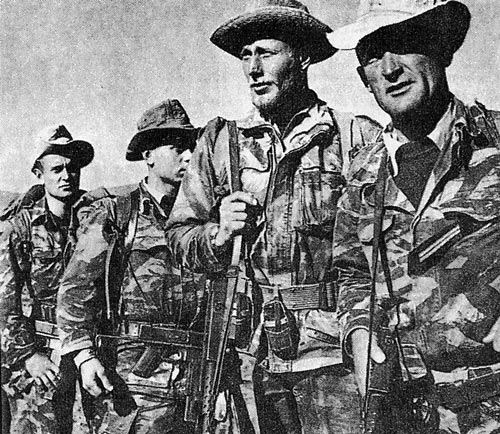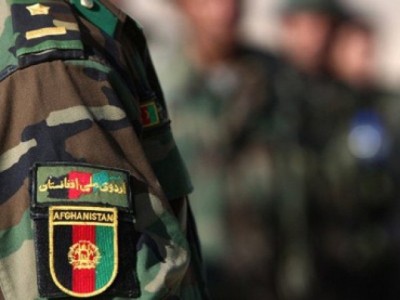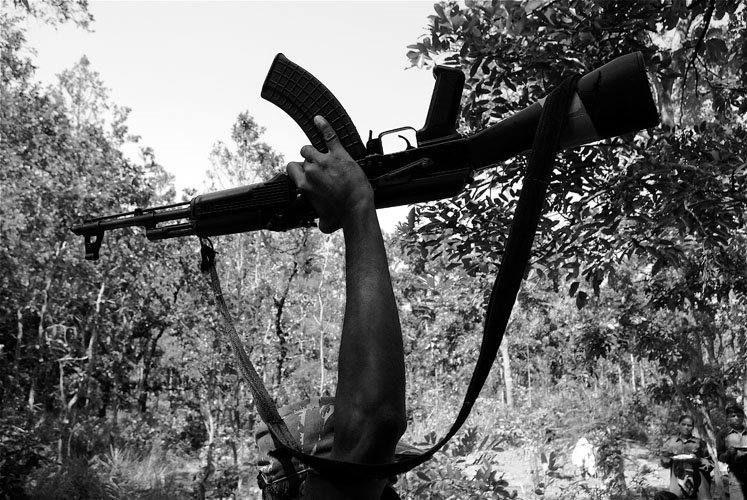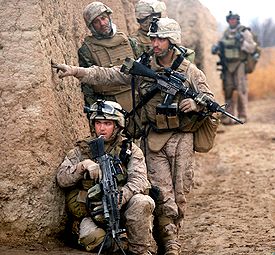The uses of counter-insurgency tactics by the French state during the Algeria War of Independence are a controversial method of conducting asymmetric warfare. Were these tactics effective in keeping Algeria a French colony? Do modern militaries and NATO have anything to gain from the French experience?
France’s colonial war in Southeast Asia taught soldiers the futility of waging conventional wars on armies “of the people.” In the Algerian case, however, French commanders studied Mao Zedong’s principles on revolutionary war and crafted a new counter-insurgency strategy. By April 1956, the new “French revolutionary army” established three zones in Algeria, classifying its objectives into operational zones, pacification zones, and prohibited zones. Early engagements against the Front de Liberation National (FLN) within these zones were successful as hundreds of thousands of peasants were relocated into internment camps or specific city districts. In the operational zones, every person caught was considered a suspect and therefore treated severely. The Dispositif de Protection Urbaine carved cities into specific sub-divisions and districts, partly reusing the Gestapo tactics of Vichy. In Algiers, the Casbah quarter became a squalid pen rife with brutality. In the 1957 Battle of Algiers, 30-40% of the male population in the Casbah was arrested. Raids after curfew were standard. Paratrooper detachments patrolled Casbah streets in the dark, planting bombs in houses, and arresting suspects on the spot.
[captionpix align=”left” theme=”elegant” width=”320″ imgsrc=”http://natoassociation.ca/wp-content/uploads/2013/06/AlgeriaFLN1957.gif” captiontext=”FLN revolutionaries in Algeria, 1957.”]
Rocking the Casbah
As the Battle of Algiers progressed, France heightened their counter-insurgency measures, concentrated in the densely Muslim populated Casbah quarter. The daily strategy was to “search and destroy”, that is, the searching of all Muslims at designated checkpoints and the destruction of property, terrorizing moderate Muslims to reveal FLN members in the wake. Albert Camus commented in the French journal Combat on the Algiers tactics, “The fact is there, clear and hideous as the truth: [the French] are doing in these cases what we reproached the Germans for doing.” His novel La Peste provides a useful allegory on the unknown face of terror: the city Oran faces a devastating plague and residents must face the terror and confront their own mortality.
Following setbacks in 1956 and during the Battle of Algiers in 1957, the FLN nearly collapsed. But the ideals behind the organization endured. Many Algerians saw the FLN not as an organization but a shared conviction that triggered the revolution rather than organizing it. While the FLN had everything to gain, France had so much to lose, including the respect of its citizens who widely condemned the tactics used during the Battle of Algiers and who felt that France was betraying her ideals of justice. In the war of respect, France was fighting on two fronts and quickly losing both.
Desperate Measures
Seeing the balance of power tip away, France adopted widespread terror tactics during the Battle of Algiers. Recommendations for its use and its practice, however, were already widely known in the French government. The Willaume report of 2 March 1955 informed Jacques Soustelle, Governor-General of Algeria, that torture was already in use as a tactic for obtaining information. Writing in the journal Esprit in April 1957, Robert Donnaud stated, “If France’s honor can go along with these acts of torture, then France is a country without honor.” The Detachment Operational de Protection 10th Paratroop division institutionalized torture to locate FLN safe houses in the Casbah. Soldiers used electric shock and drowned their suspects into confessions. These practices caused an intellectual and social revolt in France, something referred to simply as “the Question”, a haunting mark on a Western democracy in the era of the United Nations.
French tactics reinforced their ruthless drive for eradication of the FLN, but it was an embarrassing moral defeat. Few French citizens could extirpate the memory 11 years earlier when Hitler’s program of torture compelled Vichy France into submission. The descent into this moral disaster defined France’s illegitimate claims to an Algeria that was slowly slipping away, the colony beyond reach with each interrogation. Alienating many in metropolitan France, the use of torture turned committed supporters against Charles de Gaulle and staunchly towards the FLN’s goals of independence. Using torture might have been moderately successful for obtaining information during the Battle of Algiers, but its blade cut through the conscience of French citizens, a much harder wound to heal.
France left Algeria on 3 July1962 with a military exhausted from two difficult asymmetric wars. The strategic shifts from conventional war to counter-insurgency to total war drained the French budget and drained the patience of French citizens, especially when widespread use of torture proliferated. Like the Indochina War, the Algerian War of Independence signaled that the days of crushing conventional military victories were over and that guerrilla forces could defeat well-equipped Western soldiers. The French counter-insurgency experience in Algeria is an important lesson for modern militaries. Since the Algerian War, several NATO countries have added psychological training programs to their militaries. It has now become an important tool in fighting asymmetric wars. As the French experience in Algeria illustrates, studying and understanding the goals and psychology of the combatant is as critical as employing the tactics and weapons to fight them.




